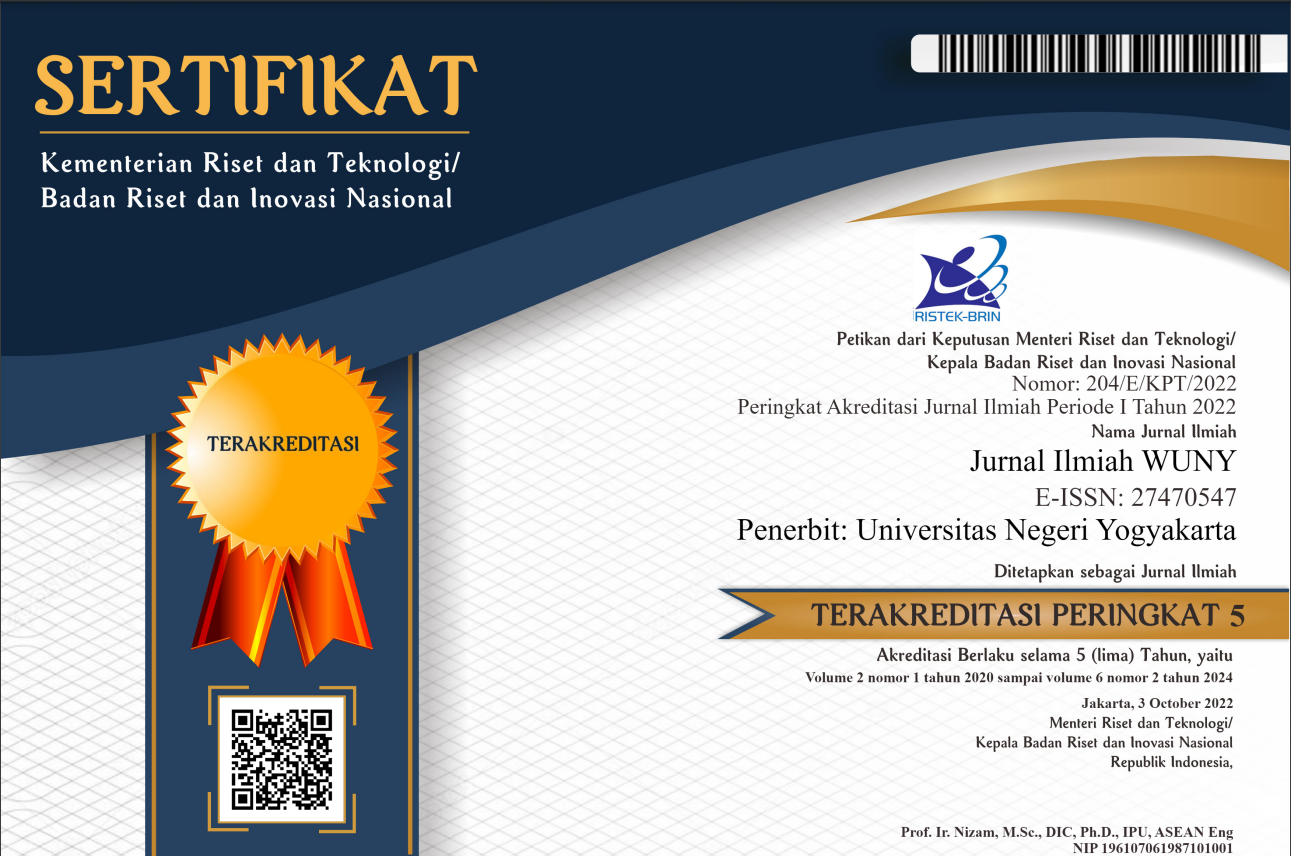APPLICATION OF THE PEER TEACHING METHOD TO INCREASE LEARNING OUTCOMES OF BASIC ELECTRICITY AND ELECTRONICS
Abstract
- This research is aimed to describe the application of the Peer Teaching Method to improve the learning outcomes of Basic Electrical and Electronics in class X AV-B SMKN 1 Saptosari, Gunungkidul. This research is a classroom action research that begins with a pretest to determine the basic score after learning is carried out before using the Peer Teaching method. This research consists of two cycles. The research was conducted at SMKN 1 Saptosari, the research subjects were 34 students of class X AV-B Audio Video. Methods of data collection using observation sheets, performance sheets / short description questions, and student response questionnaire sheets off the Peer Teaching method. Data analysis used descriptive qualitative analysis technique. The results showed that the Peer Teaching method could improve student learning outcomes. Improved results can be seen from the increase in the achievement of student learning completeness in each cycle. The achievement of student learning completeness in the pre-cycle is 41.17% (15 students complete). After being subjected to action in the first cycle with the peer tutor method, the student's mastery achievement increased to 85.29% or 29 students had met the KKM. Student learning activities also increase, because active students can easily ask questions in detail with their tutor friends. Especially when the teacher gives questions to work on, students scramble to be able to do it in front of the class. Furthermore, in the second cycle, the achievement of student learning completeness reached 91.18% or increased to 31 students who had reached the KKM. Three students who have not KKM are almost close to the value of 7.5 (KKM) with the lowest score of 7.00.
- Keywords: peer teaching method, learning outcomes, basic electricity and electronics
Full Text:
PDFDOI: https://doi.org/10.21831/jwuny.v3i2.42575
Refbacks
- There are currently no refbacks.
Copyright (c) 2022 Jurnal Ilmiah WUNY

This work is licensed under a Creative Commons Attribution-ShareAlike 4.0 International License.

This work is licensed under a Creative Commons Attribution-ShareAlike 4.0 International License
Supported by:











